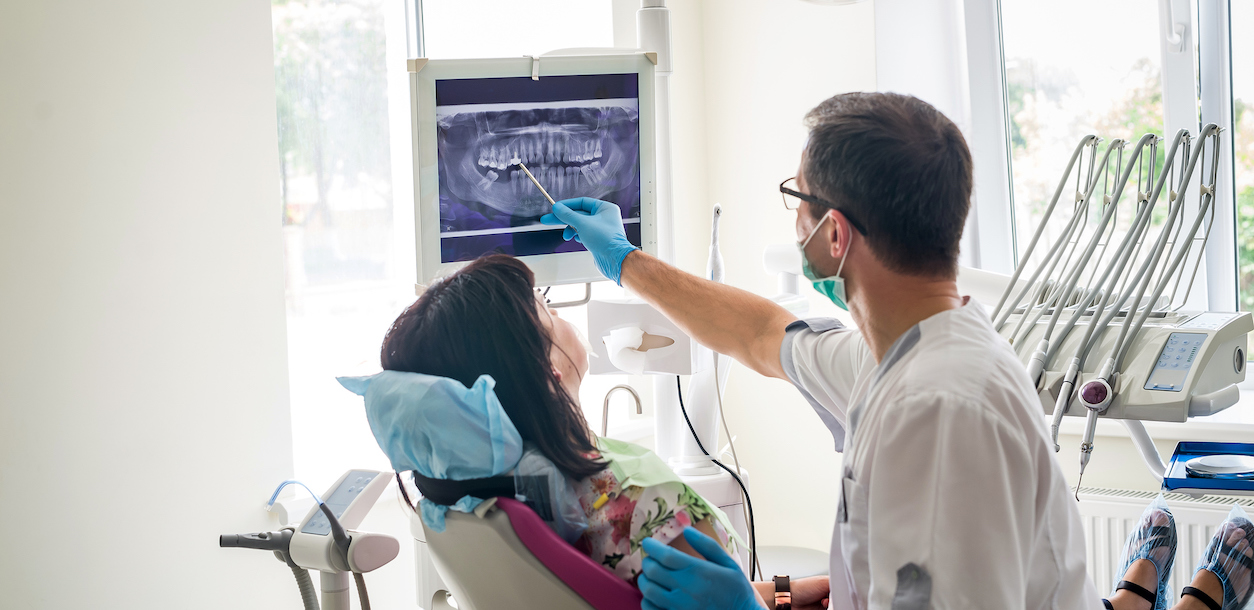5 Questions to Ask Before Deciding on a Practice for your Dental Implants
We make decisions every day on where to spend our hard earned money on the products and services we consume. You might give little thought to where you buy your groceries or fill up the car, but for more expensive purchases you’re likely to spend more time on your decision.
With dental implants, you should be choosey about the practice you use. Where you get your dental implants designed and fitted matters because they:
- Have a high purchase price
- Require a time commitment
- Will most likely impact your appearance
- Can affect your health
- Need to last you many years
Some people don’t know where to start in choosing the right practice for their dental implants. But if you ask these five questions during your decision-making process, you’re on track to choose wisely.
#1 How often do you fit dental implants?
Some dental practices offer the service but don’t fit implants regularly. They might be a busy practice doing dental check-ups, fillings, crowns and other dental procedures but aren’t doing implants often enough.
It’s our opinion that a specialist prosthodontist who does they regularly should fit dental implants. Compared to a dentist, a prosthodontist has completed an additional three-year full-time university course which leads to Specialist Registration with the Dental Board of Australia.
Prosthodontists specialise in the restoration and reconstruction of compromised teeth and the replacement of missing teeth. Implants make up a large part of a prosthodontist’s workload compared to a general dentist. No two cases are the same, so the more time spent studying and working on a range of implant cases is important for the best chance at a positive outcome.
#2 Am I a good candidate for dental implants?
Not everyone is eligible for dental implants. Yet in Australia every year, many people undergo dental implant treatment that fails. Some medical conditions place a patient at higher risk for the implant failing or increased health problems. Anyone with uncontrolled diabetes, a blood clotting disorder, a poor immune system or cancer should discuss their medical history with their dental professional before deciding on dental implants.
Poor dental hygiene is also a concern for anyone thinking about implants. Periodontal (gum) disease and any tooth decay should be resolved before implant treatment begins. High rates of implant loss are linked to people with periodontal disease.
Ideally, a child should wait until adulthood when their bone tissue is fully developed and their jaw has stopped growing before getting an implant.
#3 What is the process for fitting the implants?
There are several steps involved in producing and fitting an implant. The process can take days or months depending on the preparation required. Some patients need extractions or bone grafting before the implant is designed and fitted.
It’s important that you understand what will your treatment plan will include so you know what to expect at every stage. Ask for the plan to be explained to you before you begin and ask as many questions as you like so everything is clear. For some elderly patients getting to and from the practice is difficult, so they need to know how many appointments they require so they can organise transport in advance. For working patients, they need to organise time off work for multiple appointments.
#4 How long can I expect the implants to last?
Many people think of implants as a permanent fixture. While they aren’t like dentures that are removed nightly, dental implants stay in, but they may not last forever. Most dental implants have a life In excess of 10 years. Ask what you will need to do to maintain your implants so they last as long as possible.
#5 How much will the implant/s cost?
Dental implants are costly and you should know the full cost up-front before agreeing to the procedure. Ask your practice for a written quote with item numbers so you can speak to your health fund about what you can claim and how much. If you want to discuss your options for a dental implant or to gain a second opinion, make an appointment by calling (08) 9321 1632 or contact us online.

